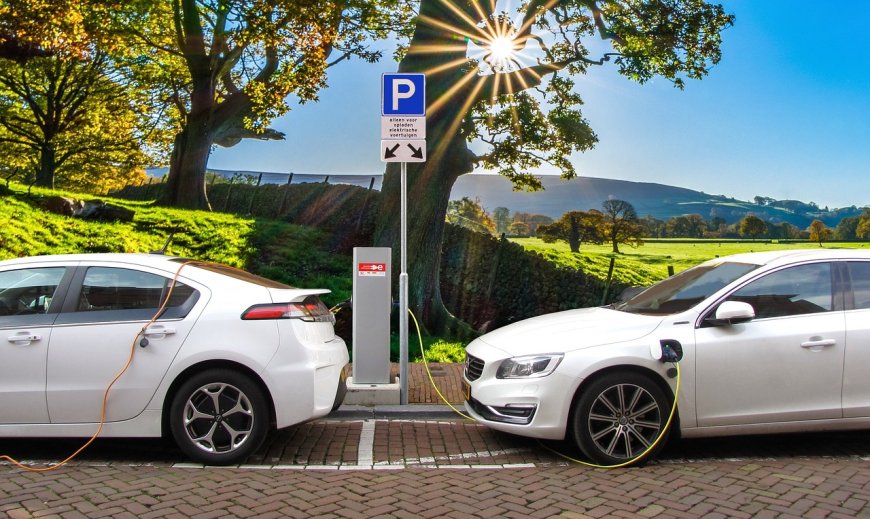The Rise of Electric Vehicles: Transforming Transportation for a Sustainable Future

Introduction:
The transportation sector plays a significant role in global carbon emissions, contributing to climate change and air pollution. In recent years, there has been a rapid rise in the adoption of electric vehicles (EVs) as a sustainable alternative to traditional gasoline-powered cars. EVs offer numerous environmental benefits, including reduced greenhouse gas emissions, improved air quality, and decreased reliance on fossil fuels. In this article, we will explore the rise of electric vehicles and their potential to transform transportation towards a more sustainable and clean energy future.
Environmental Benefits of Electric Vehicles:
Electric vehicles offer substantial environmental advantages compared to conventional gasoline-powered cars. By utilizing electric motors and rechargeable batteries, EVs produce zero tailpipe emissions, significantly reducing air pollution and improving urban air quality. Additionally, when powered by renewable energy sources, EVs can help to reduce greenhouse gas emissions, contributing to efforts to combat climate change.
Technological Advancements and Range Anxiety:
Technological advancements in battery technology have significantly improved the range and performance of electric vehicles. Modern EVs can now travel longer distances on a single charge, alleviating concerns about "range anxiety." The development of fast-charging infrastructure further supports the convenience and practicality of electric vehicles by reducing charging times and increasing accessibility.
Government Incentives and Support:
Many governments around the world are actively promoting the adoption of electric vehicles through various incentives and support programs. These include financial incentives such as tax credits, rebates, and subsidies, as well as the development of charging infrastructure networks. Government policies and regulations are instrumental in driving the growth of electric vehicle markets and accelerating the transition to sustainable transportation.
Advancements in Charging Infrastructure:
The availability and accessibility of charging infrastructure are crucial factors in the widespread adoption of electric vehicles. The establishment of public charging stations, workplace charging, and residential charging solutions are expanding rapidly, addressing concerns about charging convenience and accessibility. Furthermore, the development of ultra-fast charging technology promises even shorter charging times, making EVs even more practical for everyday use.
Cost Reduction and Total Ownership Savings:
While electric vehicles may have higher upfront costs compared to traditional combustion engine vehicles, ongoing advancements in battery technology and economies of scale are steadily reducing the cost of electric vehicles. Moreover, electric vehicles have lower operating and maintenance costs, primarily due to lower energy costs and reduced mechanical complexity. Over the vehicle's lifetime, the total cost of ownership for electric vehicles can be competitive with or even lower than that of conventional vehicles.
Impact on Energy Grid and Renewable Energy Integration:
The widespread adoption of electric vehicles presents challenges and opportunities for the energy grid. The increased demand for electricity can strain local grids, necessitating grid infrastructure upgrades and load management strategies. However, electric vehicles also offer opportunities for grid balancing and energy storage. EVs can act as distributed energy resources, enabling the integration of renewable energy sources and supporting a more resilient and sustainable energy grid.
Job Creation and Economic Opportunities:
The transition to electric vehicles and the associated infrastructure development create new economic opportunities and job growth. The manufacturing, installation, and maintenance of electric vehicle components, charging stations, and associated technologies stimulate economic activity and contribute to the growth of a green and sustainable economy.
Conclusion:
The rise of electric vehicles represents a transformative shift in transportation towards a more sustainable and clean energy future. With their environmental benefits, technological advancements, government support, and cost reductions, electric vehicles are becoming increasingly accessible and practical for everyday use. As we continue to address challenges related to charging infrastructure, grid integration, and consumer adoption, the widespread adoption of electric vehicles holds the potential to revolutionize transportation, reduce carbon emissions, and create a more sustainable and livable planet for future generations.
What's Your Reaction?



























































































